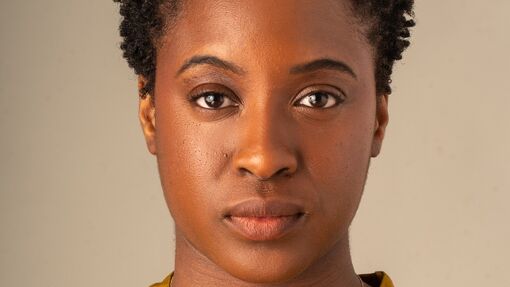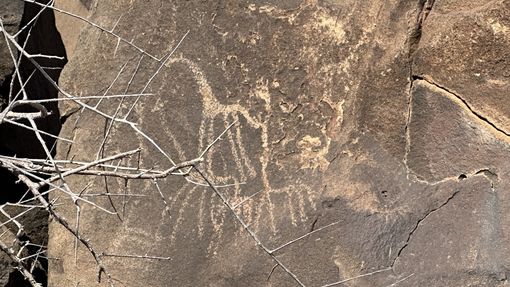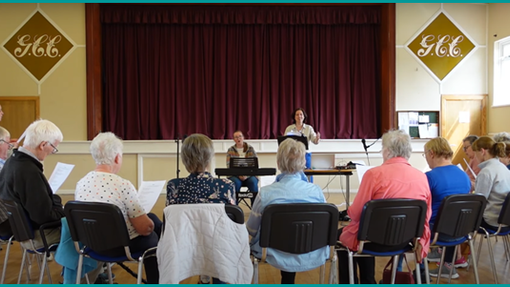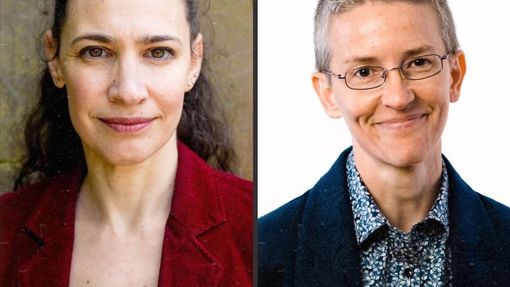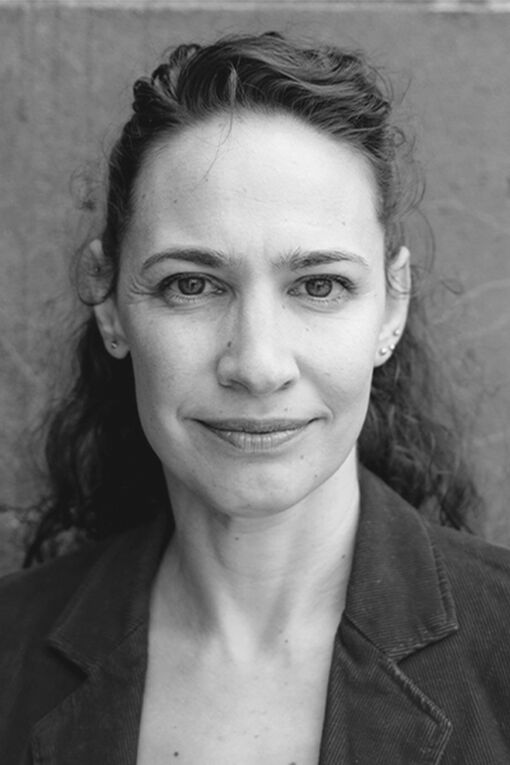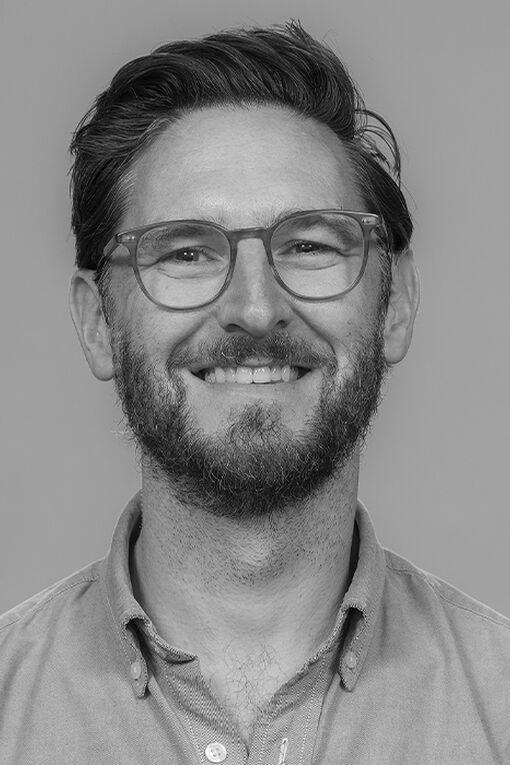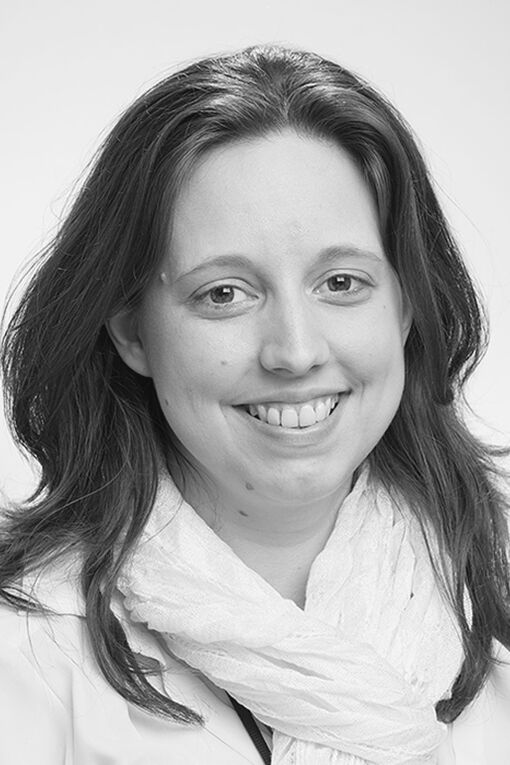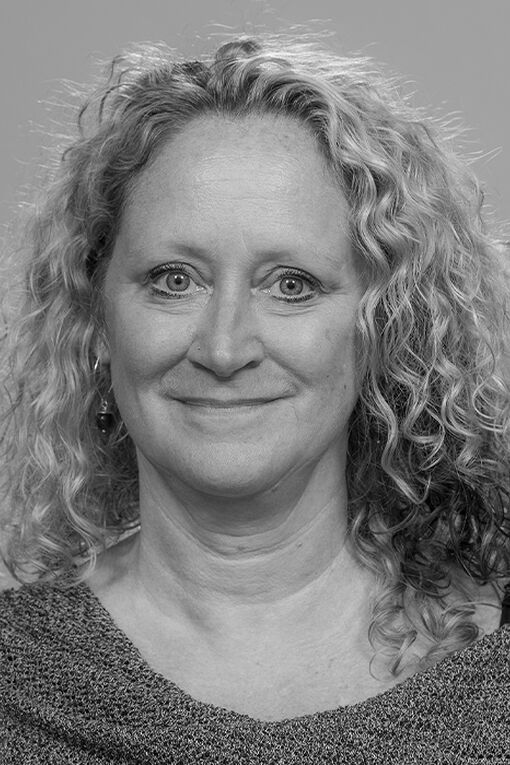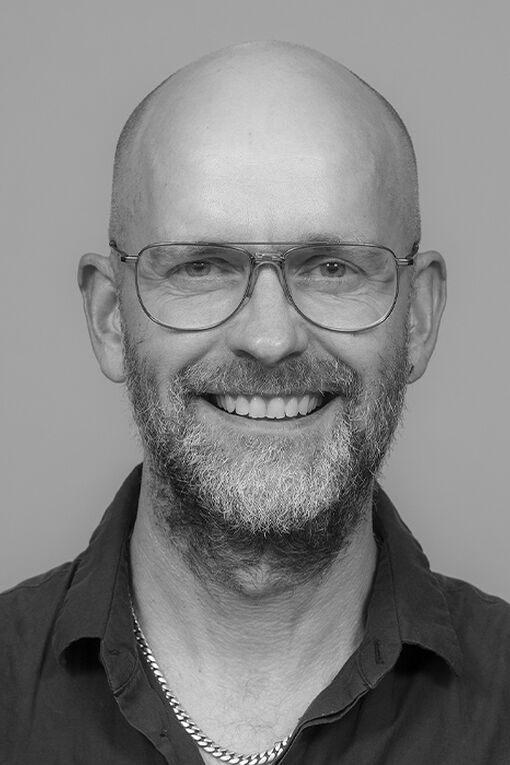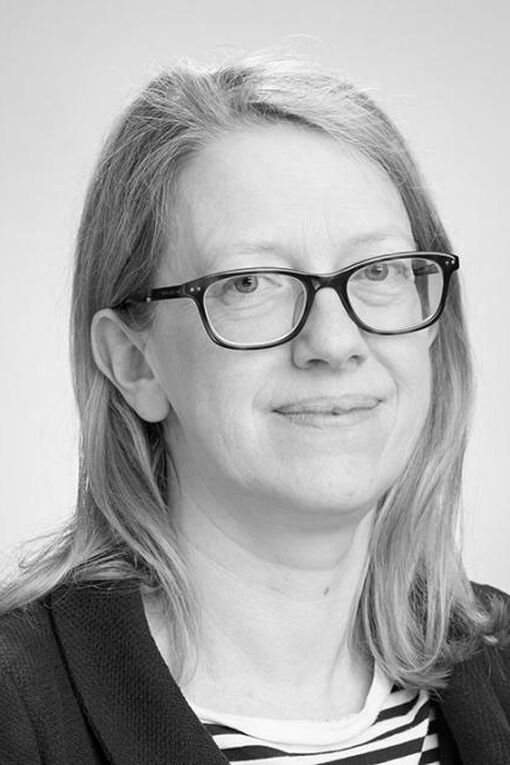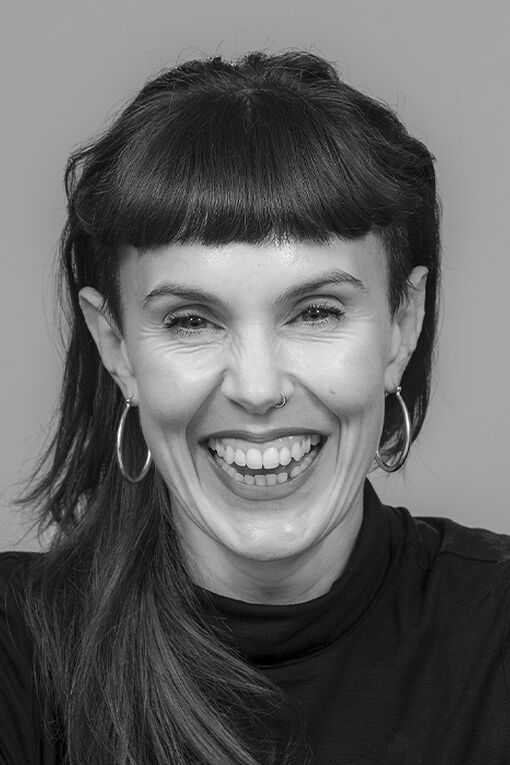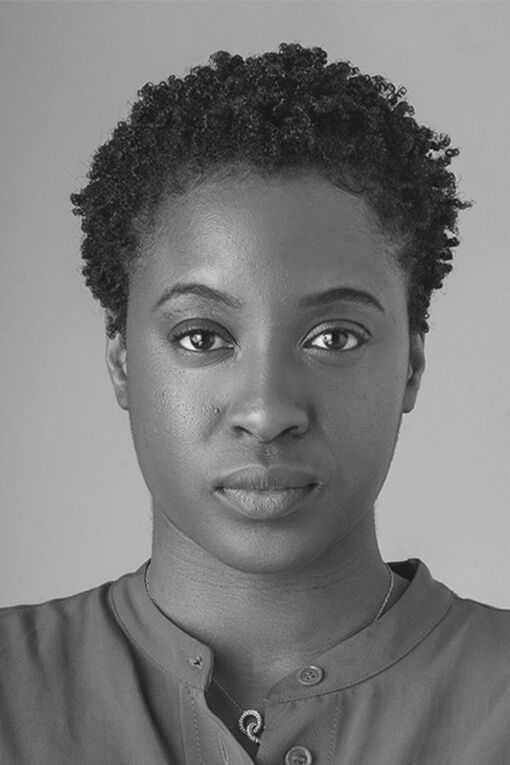
Centre for Performance, Technology, and Equity (PTEQ)
About
Funded by a £5.6 million grant, the Centre for Performance, Technology, and Equity (PTEQ) will expand the excellent research currently conducted in the Performance Lab at Central, where ground-breaking approaches to immersive and digital technologies are innovated from a performance-led perspective in tandem with promoting social equity.
The vision for PTEQ is to catalyse research and development at the intersection of performance and technology with community and cultural industries partners that will champion inclusivity, diversity, and resource equity, to transform the discipline of theatre and performance, foster cross sector-innovation, and position the UK as a global leader in intertwining social justice with technological innovation through the arts.
Read more about the E3 grant and PTEQ’s vision.
Sign up to receive the latest news, updates, and opportunities to collaborate with PTEQ.
PTEQ news
Congratulations to Dr Tia-Monique Uzor, Lecturer in Contemporary African and Caribbean Diasporic Performance, who has been awarded research grant funding from the Arts and Humanities Research Council’s (AHRC) Dance Research Matters Network to establish the Digital Black Dance Ecologies Network. The funding will support research and activities undertaken by the Network through March 2025.
African Rock Art (ARA) is a Knowledge Exchange project funded by The Royal Central School of Speech and Drama (Central), that brings together Professor Selina Busby, C&T the Trust for African Rock Art (TARA) and the Nairobi National Museum.
Dr Nicola Abraham, Senior Lecturer in Applied Theatre practices took her work to Northern Ireland recently, to collaborate with the Laurencetown, Lenaderg and Tullylish Community Association. Here, she reflects on the project and what they’ve achieved so far.
Central's Professor Kate Elswit (Professor of Performance and Technology) and collaborator Harmony Bench (The Ohio State University) are leading a dance data project on choreographer Alvin Ailey, commissioned by the Whitney Museum of American Art.
Meet the PTEQ team
Recent Projects by PTEQ Researchers
- ‘Wonder VR: Innovating Digital Dementia Care,’ funded by Research England and the Office for Students
- ‘Worli Koliwada: My Neighbourhood, My Responsibility’, funded by the Global Challenges Research Fund (GCRF)
- ‘Dunham’s Data: Katherine Dunham and Digital Methods for Dance Historical Inquiry’, funded by a Standard Research Grant from the Arts and Humanities Research Council (AHRC)
- ‘Visceral Histories, Visual Arguments: Dance-Based Approaches to Data,’ funded by an AHRC Research, Development and Engagement Fellowship
- ‘The Rising Sun’, funded by Arts Council England (ACE)
- ‘New Beginning’, Queen’s Theatre Hornchurch
- ‘Staging Difficult Pasts: Of Narratives, Objects and Public Memory’, funded by the AHRC
- ‘Der Reisende’, Berlin Exilmuseum
- The Noise My Leaves Make: Black British Women and Surrendering to Belonging, CARICUK commissioned film
- ‘Digital Black Dance Ecologies’, AHRC funding from the Dance Research Matters network scheme
- Fevered Sleep, Associate Theatre Company
Collaborate with Us
We would love to hear from researchers, industry and organisations which explore the PTEQ’s mission.
Current PTEQ partners include:
Work with Us
Over the next few years, we will be hiring various roles, from creative technologists to postdoctoral researchers, as well as offering a number of funded PhD studentships.
Please check back here or join our mailing list.
-
PhD Studentships
We are pleased to advertise funding for the first cohort of collaborative PhD studentships to begin Autumn 2024 through the new Centre for Performance, Technology, and Equity (PTEQ) at the Royal Central School of Speech and Drama.
Funded by an E3 grant, PTEQ will expand the excellent research currently conducted in the Performance Lab at Central, where ground-breaking approaches to immersive and digital technologies are innovated from a performance-led perspective in tandem with promoting social equity. The vision for PTEQ is to catalyse research and development at the intersection of performance and technology with community and cultural industries partners that will champion inclusivity, diversity, and resource equity, to transform the discipline of theatre and performance, foster cross sector-innovation, and position the UK as a global leader in intertwining social justice with technological innovation through the arts.
In addition to four collaborative PhD opportunities, we are also offering one open-field application.
1. Digital Communities and Creative Health
Academic Supervisors: Dr. Nic Abraham and Professor David Harradine (Central)
Co-supervisor/Partner Lead Contact: Stuart Cox (Hoxton Hall)This fully-funded practice-based PhD will focus on the use of creative technology to enhance and extend the reach of Hoxton Creative Health Hub, a new initiative co-led by Hoxton Hall and the culture team of the London Borough of Hackney, and which brings together cultural, community and health-sector organisations in and around Hoxton and Shoreditch. Grounded in digital practice and health equity, the PhD project will chart the evolution of the use of technology as a tool to enhance creative health provisions in the local community. The research project will explore strategies to widen participation, particularly beyond barriers of arts-based work and access. The PhD is rooted in a rapidly expanding creative health sector, and will bring timely new perspectives on the potential for creative technologies to extend reach and deepen impact in this field, by developing a sustained and applied approach to health-related creative technologies rooted in community co-creation.
2. Accessible Archiving
Supervisory team: Professor Kate Elswit (Central) and Dr. Alice Sheppard (Kinetic Light)
Kinetic Light is a disability arts organisation working in the disciplines of art, technology, access, design, and dance. This fully-funded PhD research will contribute to Kinetic Light’s experimentation and planning around an accessible archival and documentation practice that will extend from its physical materials (costumes, sets, props), across its artistic materials (performance and rehearsal videos and images, prep notes, and workbooks), through its digital materials (film and video content, software, writing, and research) to its internal administrative practice (company culture evolution, research, dialogue). Taking a broad approach to both archiving and access, the project will extend from experimental approaches to archival science that balance interoperable metadata with cultural understanding, to the exploration of possible multimodal approaches to archiving and documentation, as well as the future retrieval of Kinetic Light’s history.
3. Digital Cultural Heritage
Academic Supervisors: Professor Selina Busby and Dr. Liam Jarvis (Central)
Co-supervisor/Partner Lead Contact: Paul Sutton (C&T)This collaborative doctoral project contributes to C&T’s research in the area of applied theatre and technology, with particular focus on widening access to cultural heritage in a variety of locations. The research will investigate how dramatic techniques, genres and methodologies can be integrated with emerging digital approaches such as augmented reality, virtual reality, AI, and gamification in order to enhance engagement with museums or cultural heritage sites. The researcher might explore how digital tools can be used to widen participation and diversify normative viewing patterns through virtual curation, challenge established historical narratives, intervene in museum display practices, question boundaries between tangible and intangible cultural heritage, and/or better represent the pasts of marginalised communities. The relationship between physical and digital curation will be interrogated and potential interdependencies with applied theatre methodologies, with a particular focus on lowering technological barriers to entry for both curators and audiences. It will open up opportunities for practice research using C&T’s Prospero digital curation and arts facilitation platform, in relation to independent practice or existing C&T projects, as appropriate to the inquiry.
4. Creative Technologies in Public Arts
Academic Supervisors: Dr. Lynne Kendrick and Kate Lane (Central)
Co-Supervisor/Partner Lead: Simon Chatterton (101 Outdoor Arts – National Centre for Arts in Public Spaces)This fully-funded PhD will undertake theoretical analysis and/or practice research on the use of creative technology in arts for public spaces, working with 101 Outdoor Arts, with specific focus on equity, technology, and theatre/performance practice in relation to the environment. 101 Outdoor Arts is the UK’s principal centre for the development and production of the outdoor arts sector, serving as a national hub to nurture innovation and experimentation in site-specific and outdoor performances. The research project will work on the use of creative technologies to enable arts practitioners to realise powerful experiences that can engage diverse audiences in public space contexts. The PhD might examine the unique nature of outdoor arts and technology in widening participation and engagement in outdoor arts, explore questions of how to make technologies in public performances more affordable, accessible, and appropriate for creatives in this field, and/or develop innovative approaches to the use of creative technologies in the unique sites and contexts offered by the outdoor arts sector. The PhD is rooted in histories and practices of outdoor art and site-specific performance, and as well as the use of creative technology to mobilize and engage with local publics.
5. Open Field
A proposal for doctoral research in any of PTEQ’s core areas of investigation – linking performance technologies with concerns over social and resource equity – with supervision by any PTEQ researchers. In addition to pursuing an individual research project, this candidate will also gain professional experience as Editorial Assistant for Contemporary Theatre Review.
Applicants should normally have a good undergraduate degree in a relevant discipline, and a Masters-level qualification or equivalent. We also encourage applicants with relevant work/professional experience who are considering doing a PhD to apply. Applications from candidates of underrepresented groups are particularly encouraged.
Studentships can be either full or part-time. The studentship includes a stipend for living costs at the UKRI Home rate plus fees and up to one studentship can cover international fees.
Expressions of Interest (EOI) should be submitted by 10am on Tuesday 28 May, 2024 via Central’s online portal, selecting the PTEQ funding route. EOIs should indicate which PTEQ studentship is of interest, and speak to the experience and research investments that would inform their work on that project. Applicants invited to next-stage interviews will be asked to submit references.
Further questions regarding the studentships can be directed to kate.elswit@cssd.ac.uk
-
Postdoctoral Researchers
We are pleased to advertise roles for two Postdoctoral Researchers, who will be core members of the Centre for Performance, Technology, and Equity (PTEQ). These are two-year, full-time appointments, with the potential for extension and/or to transition to a permanent role from the third year onward. The initial 24-month roles will be appointed at Grades 6, dependent on experience, beginning as close as possible to 16 September 2024.
We are seeking two ECRs whose research intersects with the work of PTEQ. Of particular interest is expertise in 1) the use of XR technologies in theatrical contexts; and/or 2) practices of and design for access in relation to performance. Demonstrated interest in social and/or environmental justice, and prior experience working with multiple communities and stakeholders is a plus.
We anticipate a mentored program of research at the interface of performance and emerging technologies, emphasizing their use and evolution in the creative industries, and how they can foster inclusivity. In addition, the PDRAs will also contribute to doctoral supervision and to developing and delivering new PTEQ-related teaching initiatives, from short-courses to a new MFA program that will take place in PTEQ facilities. There may also be further opportunities with Central’s teaching initiatives in D/deaf/hard of hearing actor training, or with PTEQ’s partners, such as facilitating peripatetic training in regional theatres across the UK.
To apply, and for more information, visit the job listing
-
Creative Technologists
We will shortly be advertising two creative technologist roles. Please check back!
UKRI logo


